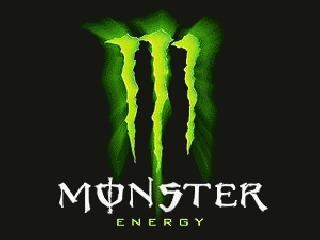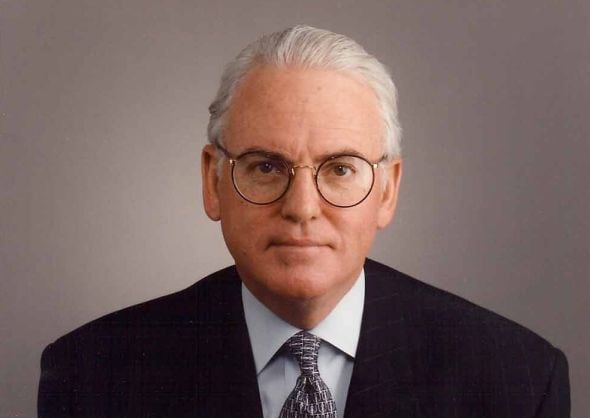After the lawsuit was filed last October, Monster retained experts including a cardiac pathologist, a cardiac electrophysiologist, an emergency room physician, a chief forensic pathologist/coroner, a toxicologist and a pharmacologist to look at the medical evidence, claimed Monster’s attorney Daniel Callahan, a partner at law firm Callahan & Blaine.
Speaking at a press conference to address some of the allegations in the lawsuit, Callahan, said:
"After an examination of Ms. Fournier's medical records, pathology report and autopsy report, the physicians stated conclusively that there is no medical, scientific or factual evidence to support the Maryland medical examiner's report of 'caffeine toxicity' or that Ms. Fournier's consumption of two Monster Energy Drinks 24 hours apart contributed to, let alone was the cause of her untimely death."
Monster attorney: Ms Fournier had pre-existing heart conditions which increased her risk of cardiac arrhythmia and sudden death
Two of the experts at the press conference - Dr. Michael H. Forman of the Tri-City Emergency Medical Group in San Diego County, an emergency room specialist who has treated thousands of cases of cardiac arrhythmia, and physician Dr Bob Arnot - argued that Ms Fournier’s sudden death was "most likely" caused by Myocarditis, or inflammation of the heart.
Medical records showed that 14-year-old Ms Fournier - who suffered a cardiac arrest in December 2011 after allegedly drinking two 24oz cans of Monster Energy in 24-hours - had pre-existing heart conditions which increased her risk of cardiac arrhythmia and sudden death, claimed Dr Arnot.
Ms Fournier - who had a family history of heart problems - suffered from several medical conditions known to increase the risk of cardiac arrest and sudden death, including an enlarged heart, a vascular form of connective tissue disease called Ehlers-Danlos Syndrome, mitral valve prolapse and myocardial fibrosis (a thickening or scarring of the cardiac tissue), he said.
But there is “no link between caffeine and death from myocarditis”, he claimed. “In myocarditis, there is usually no trigger at all.”
There is no link between caffeine and death from myocarditis
While the Maryland medical examiner’s report on Ms Fournier’s death referred to ‘caffeine toxicity’, no blood tests had in fact been conducted to confirm this, alleged Dr Forman, while an independent pathologist hired by the state found the cause of death to be cardiac fibrosis, he claimed.
When the examiner was asked why she used the term ‘caffeine toxicity,’ she said it was because "she had been told by Ms. Fournier’s mother that her daughter had consumed an energy drink containing caffeine", he alleged.
Meanwhile, as regards Ms Fournier's possible sensitivity to caffeine, the fact that she was just 14 was not relevant from a clinical perspective, he claimed. “The effects of caffeine are relevant to a person’s size and weight, and she was of an adult size and weight [Ms Fournier was 5,6” and weighed 145lbs, he said].”
Plaintiff's attorney: Monster is misleading the public
However, Kevin Goldberg, a lawyer from Goldberg, Finnegan & Mester LLC representing Ms. Fournier's parents, told FoodNavigator-USA that it was the combination of caffeine and other ingredients in Monster Energy such as guarana, taurine and panax ginseng that may have been important in the case.
He added: "It's not just the caffeine."
Meanwhile, Monster did not list the amount of caffeine contributed by natural ingredients such as guarana, he added. "Monster is misleading the public."
Asked why the medical examiner had cited caffeine toxicity as a cause of death when no blood test had been taken to determine if Ms Fournier had even ingested caffeine, he said: "The medical examiner looked at the totality of evidence and this is her conclusion."
He added: "In America, a jury of our peers determines justice. Not doctors paid by billion-dollar corporations to attend press conferences."
The fact she had consumed a Monster beverage the day she died is a red herring

But while large amounts of coffee or any other caffeine-containing products can have “behavioral” effects - and might make a young child more “hyper”, there is “no data that it would put anybody of any age at risk of sudden death”, Dr Forman told journalists attending the press conference.
He added: “I did not find any evidence that there was any relation whatsoever [between Ms Fournier’s alleged consumption of Monster Energy drinks and her sudden death].”
When a young person suddenly dies of cardiac arrhythmia, it is very difficult to determine why she might be fine one day and suffer sudden death the next, he said.
“The fact that she had consumed a Monster beverage the day she died is a red herring. She could have had a Coke, or bottled water, or whatever. She had serious cardiac abnormalities.”
Meanwhile, Ms Fournier regularly drank coffee and energy drinks without incident, he said.
Individual would have to consume 60+ 16oz cans of Monster Energy in one sitting to ingest fatal dose of caffeine
The lawsuit alleges that Ms. Fournier drank one 24-oz Monster Energy drink (containing 240mg caffeine) at about 5:30 p.m. on December 16, 2011, without incident, and then drank another 24oz can at around the same time the following day, also without incident, said Callahan.
Approximately three hours after consuming the second beverage on December 17, she suffered a cardiac arrest.
At that point, Ms Fournier would already have digested all of the caffeine from the first can, and would have had around 2/3rds of the caffeine in the second can (c.160mg) left in her system to process, which is a trivial amount given that the fatal acute oral dose of caffeine in humans is estimated to be 10,000-14,000mg, Callahan said.
“An individual would have to consume over 60 16oz cans of Monster Energy in a single sitting to ingest 10,000mg of caffeine.”
He also noted that a December 2011 study published in the American Journal of Medicine called Caffeine and cardiac arrhythmias: a review of the evidence concluded that “Overall, the data suggest that in most patients, even those with known or suspected arrhythmia, caffeine in moderate doses is well tolerated and there is therefore no reason to restrict ingestion of caffeine.
“Monster is very sorry for the family’s loss, but the facts do not support placing the blame of Ms. Fournier’s untimely passing on Monster beverages”, added Callahan, who noted that more than five million Monster energy drinks are “sold and safely consumed every single day in 90 countries”.
This lawsuit is without merit

Much of the press conference was taken up with discussion of the relative caffeine content of Monster Energy and other beverages, with Callahan noting that “a 16-ounce can of Monster Energy contains roughly half (160mg) the caffeine of a 16-ounce cup of coffeehouse-brewed coffee (330mg).”
Asked why the firm was holding a press conference now, Callahan said a hearing on Chicago Alderman Ed Burke’s proposed citywide ban of energy drinks in Chicago is scheduled this week.
And given that Ms Fournier’s death was cited by Burke to justify his proposed ban, it was important to ensure that the facts were out in the public domain, said Callahan. “This lawsuit is without merit.”
As to claims made by Burke and others that energy drinks are unregulated, Callahan stressed that all of the ingredients in Monster Energy (which is classified as a dietary supplement, but will shortly be re-badged as a beverage) are GRAS (generally recognized as safe).
What was the cause of death?
Click here to read the lawsuit filed against Monster Beverage Corp in Riverside, CA by Anais’ parents Wendy Crossland and Richard Fournier, which alleges that Anais died “following an ingestion of a toxic amount of caffeine and other stimulants through her consumption of two 24oz Monster Energy drinks within a 24-hour period”.
“According to the autopsy report and death certificate [alleges the complaint], the cause of death was cardiac arrhythmia due to caffeine toxicity complicating mitral valve regurgitation in the setting Ehlers-Danlos syndrome.”
